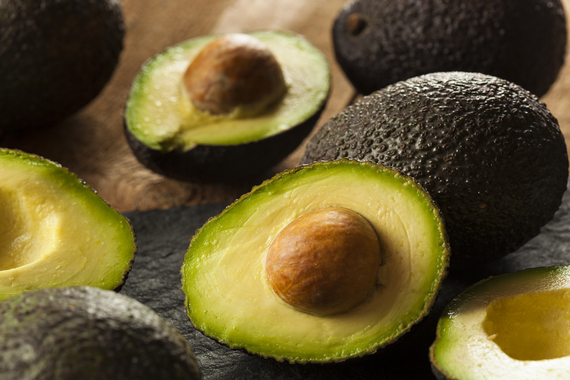
Credit: Ben Bryant/Shutterstock
Wander down the oil aisle of the supermarket and you'll be swimming in lipid-based lingo, with modifiers like cold-pressed, extra-virgin, omega-rich, and superfood all describing a substance not known as a health food: fat. Isn't a fat just a fat, no matter the source?
Well, yes and no. While every tablespoon of fat contains about 120 calories, an oil's source and composition play a huge role in your health. Dr. Steven Masley and certified nutrition specialist Jonny Bowden, PhD, authors of Smart Fat, shared some pointers to help you decide which cooking oil is right for you.
More: The Healthiest Orders at Every Major Fast-Food Chain
First, you should get to know the basic categories of fat
Fats fall into three categories: saturated, monounsaturated, and polyunsaturated. Fats from animals, such as butter, are generally saturated. Vegetable-based oils (and some marine oils), on the other hand, are usually either polyunsaturated or monounsaturated, with the former giving you those much-touted omega-3 fatty acids.
Nearly all cooking oils contain a mixture of saturated, monounsaturated, and polyunsaturated fats, but are categorized based on which fat dominates the chemical makeup.
Fat is essential for your health
Fat not only adds flavor to your food, it plays a vital role in your health. "The reputation of fat as something 'bad' for you is completely out of date. It was a myth from the very beginning," says Bowden. "Fat is necessary to absorb vitamins A, E, K, and D, not to mention the full range of carotenoids. Fat balances hormones, gives us energy, cushions our organs, and blunts our blood sugar."
In order to cash in on these benefits, though, you'll need to choose cooking oils based on two things: source and smoke point.

Credit: Brent Hofacker/Shutterstock
The source really matters
According to Dr. Masley and Bowden, there are good (smart) fats, bad (dumb) fats, and neutral fats. "Smart fats are of proven clinical benefit. They have been studied in humans in clinical trials and shown to provide real benefits," says Dr. Masley, who cites health advantages like reduced inflammation (an issue that causes accelerated aging) and improved insulin control.
Smart fats are sourced from olives, avocados, nuts, and seeds. Bad fats, which have been shown to be harmful to the human body, include trans fats (aka hydrogenated or partially hydrogenated oils), highly refined vegetable oils (such as soybean oil), and fats high in omega-6s (such as unrefined safflower oil). Neutral fats, which include some saturated fats (like palm oil) and animal fats (butter or lard) from grass-fed, organically raised animals, might not do the same sort of damage that trans fats do, but may not actively benefit your health, either.
To find out which cooking oils you should actually buy, get the full story at Thrillist.com!
More from Thrillist:
Kale 2.0: The Trendy Vegetables You're About to Be Sick Of
How to Hack Whole Foods
Like Thrillist on Facebook: www.facebook.com/Thrillist
Also on HuffPost:
-- This feed and its contents are the property of The Huffington Post, and use is subject to our terms. It may be used for personal consumption, but may not be distributed on a website.
No comments:
Post a Comment